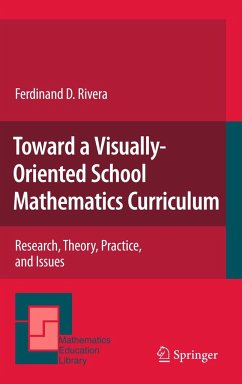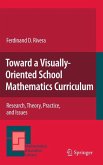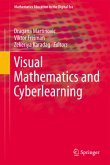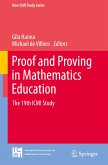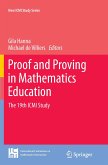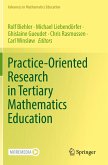What does it mean to have a visual representation of a mathematical object, concept, or process? What visualization strategies support growth in mathematical thinking, reasoning, generalization, and knowledge? Is mathematical seeing culture-free? How can information drawn from studies in blind subjects help us understand the significance of a multimodal approach to learning mathematics? Toward a Visually-Oriented School Mathematics Curriculum explores a unified theory of visualization in school mathematical learning via the notion of progressive modeling. Based on the author's longitudinal research investigations in elementary and middle school classrooms, the book provides a compelling empirical account of ways in which instruction can effectively orchestrate the transition from personally-constructed visuals, both externally-drawn and internally-derived, into more structured visual representations within the context of a socioculturally grounded mathematical activity. Both for teachers and researchers, a discussion of this topic is relevant in the history of the present. The ubiquity of technological tools and virtual spaces for learning and doing mathematics has aroused interest among concerned stakeholders about the role of mathematics in these contexts. The book begins with a prolegomenon on the author's reflections on past and present visual studies in mathematics education. In the remaining seven chapters, visualization is pursued in terms of its role in bringing about progressions in mathematical symbolization, abduction, pattern generalization, and diagrammatization. Toward a Visually-Oriented School Mathematics Curriculum views issues surrounding visualization through the eyes of a classroom teacher-researcher; it draws on findings within and outside of mathematics education that help practitioners and scholars gain a better understanding of what it means to pleasurably experience the symmetric visual/symbolic reversal phenomenon - thatis, seeing the visual in the symbolic and the symbolic in the visual."
Bitte wählen Sie Ihr Anliegen aus.
Rechnungen
Retourenschein anfordern
Bestellstatus
Storno

